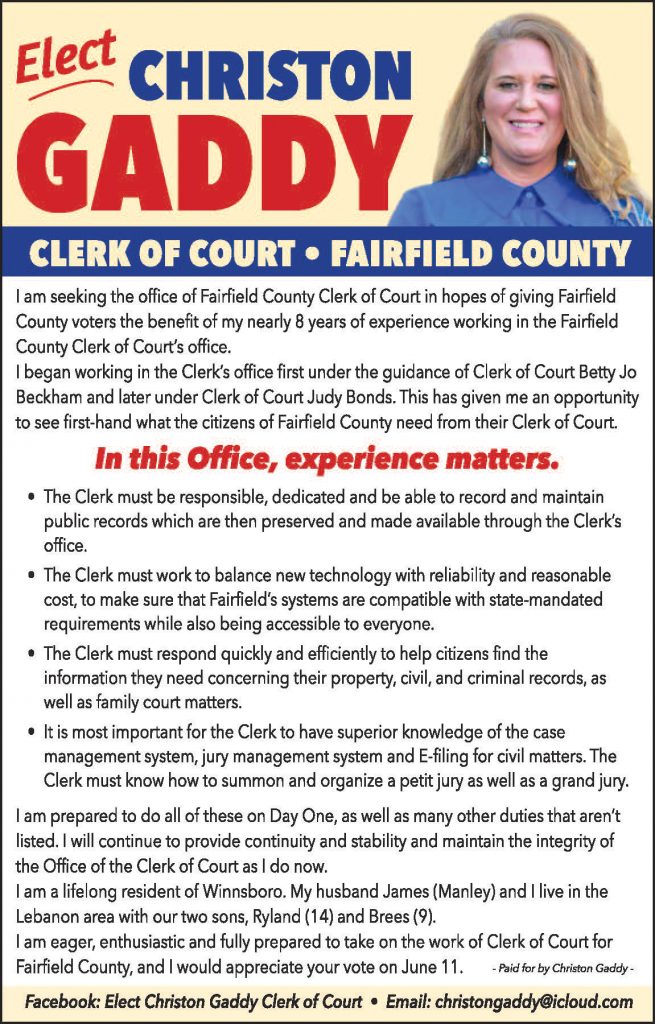Fairfield Memorial Hospital continues on the road to financial recovery, the hospital’s board of trustees reported to County Council Monday night at their quarterly joint meeting. While the quarterly meetings came along with the County’s $2 million bailout of the hospital earlier this year, Council Chairman David Ferguson said the progress the hospital has made has been substantial enough to curtail those meetings.
“We feel like the hospital is headed in the right direction,” Ferguson said. “I’m going to ask Council (at their Sept. 24 meeting) to change these meetings to every six months.”
The change, Ferguson said, would come after the next regularly scheduled quarterly meeting in January, provided Council gives the suggestion the thumbs up.
Tim Mitchell, the hospital’s chief financial officer, reported that the hospital remains current on its payments into the State Retirement System, as well as its contributions to employees’ insurance premiums. Hospital CEO Mike Williams told Council the hospital’s initiatives and strategic plan has been successful at building revenue for Fairfield Memorial. The hospital opened its FMH Specialty Clinic in June and an Orthopedic and Dermatology Clinic last month. The hospital’s senior initiatives have also met with considerable success, and in August the hospital earned a three-year accreditation through the Joint Commission.
Still, there remains room for improvement, Williams said. For example, Williams noted that County EMS drivers were sending too many patients to emergency rooms at other hospitals for conditions that could be treated at Fairfield Memorial. And, Mitchell reported, August saw the hospital experience a net loss of $149,000. The summer months are typically low-volume months for the hospital, Mitchell said, but this August’s patient numbers were very close to numbers in August 2011, when the hospital actually showed a profit. The difference between this August and last August, Mitchell said, was the number of charity care patients and self-pay bad debt write-off.
The hospital also has some considerable expenses looming in its future, namely a new computer system, known as Cerner/Tribridge, designed to share patient information with other health care entities.
“I need Council to be very cognizant that these initiatives, while we agree with every one of them, are not necessarily directed by the hospital,” Board Chairman Nelson Lacy said. “This Cerner system is one that is very important, because we are meeting federally mandated requirements.”
Cerner must be in place by 2015, Lacy said, at a cost of approximately $2 million. But between now and 2015, the hospital can access nearly half of that in grants and stimulus funds.
“We have an opportunity between now and 2015 to take advantage of money that can help us reduce the cost,” Lacy said. “If we’re not in place by 2015, not only do we lose the ability to have assistance in reducing the cost, we will be technically fined. We will have to give up part of our income because we’re not part of Cerner or a Cerner-type program.”
On average, the hospital would need to generate approximately $10,000 in additional revenue each month over the next six years to cover the cost of the new computer system, Mitchell reported – essentially the same as it would cost to upgrade and maintain the hospital’s current system in order to meet the federally mandated requirements.












